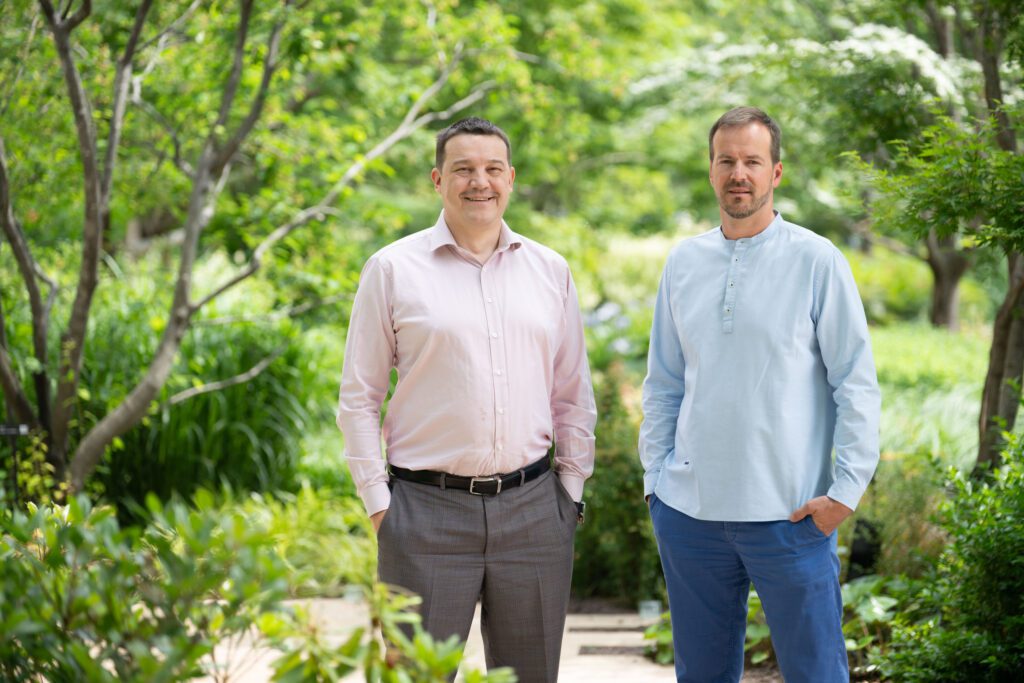In a panel discussion entitled “It’s About Time to Deep Tech! Vision: Nordic Tech Valley” at Latitude59 2024, the representatives of Estonia, Finland and Sweden pointed out that it is time for the Nordic countries to look beyond their borders. With the help of our partner Startup Estonia, we’ve summarised the key points of the dicussion that took place in Tallinn in May 2024.
Estonia, Finland and Sweden share a common goal of attracting deep tech research and business teams to the region to compete together against major markets in America, Asia and Europe. The Nordic countries and the Baltic states have great potential to emerge as European innovation leaders, but small nations need to stick together to make a global impact, said Matti Hautsalo, Founding Partner of Nordic Science Investments, Eve Peeterson, Head of Startup Estonia, and Katarina Brud, Director of Sweden’s MobilityXlab. Co-founder of the Singapore Deep-Tech Alliance (SDTA) Clara Chen shared her experiences with the audience.
Global competition for talent and resources is intensifying, and panellists agreed that the Nordic countries and Baltic states must take the lead if they want to stay ahead of the competition. Our regions are simply too small to take on global competition alone, but viewed from a collective Nordic-Baltic perspective, the region has great potential with a combined population of 33 million contributing around 2 per cent of world GDP.
Founding Partner of Nordic Science Investments Matti Hautsalo noted in the panel discussion that international capital is not interested in Finland or Estonia, but in the region as a whole, and that in the future it will be regions, not countries, that compete with one another. “Our strength lies in agile governments, and the Estonian government stands out. However, the initiative cannot be driven from the top down. The private sector, people and investors who want to get things done, who have insight and needs – things like that get through to the decision-makers,” he said.
Estonia aims to have 500 deep tech companies operating here by 2030. Singapore, which is the size of Hiiumaa, for example, already boasts 1,200 deep tech startups. Clara Chen, co-founder of the local Deep-Tech Alliance, who took part in the panel discussion to introduce Singapore’s success story, confirmed that cross-border cooperation is crucial for the development and deployment of deep technologies. “Unlike software solutions, deep tech cannot be created in 24 hours and requires a lot of capital. This is why it is crucial to activate the private sector and large corporations and create a functioning deep tech ecosystem,” said Chen. Since Singapore is a small market, it relies heavily on its larger neighbours in Malaysia and Indonesia.
The discussion concluded with the acknowledgement that today, the countries of the Baltic and Nordic region are primarily focused on their themselves but that a collaborative approach is needed to become an international hub, as this would help combine experience and best practices and attract international capital and the workforce needed to develop technologies in the region.
Head of Startup Estonia Eve Peeterson underlined that the lack of qualified labour with highly specialised skills limits Estonia’s chances to succeed in the deep tech sector. “We need such a broad range of knowledge and experience that we are unable to cover all these areas as a small country. On the one hand, we must combine the knowledge and competences that we have in our region, but on the other hand, we must work together to be more visible for international talent on the global stage.”
Katarina Brud, Head of the Swedish innovation center MobilityXlab, pointed out that all the countries in the region have different strengths and should join forces. “It takes a village to nurture a deep tech startup, and that’s how we should approach the matter. We need to work more together closely.”
Peeterson acknowledged that while cooperation is very much already happening, it can often seem invisible, especially to newcomers. “It’s very difficult to get started if you have no idea where to look for the competences you need or how to approach universities and teams in other countries. There is no coherent big picture as of today. This is why we need to make our cross-border initiatives more visible by grouping them under a common framework,” said Peeterson, outlining one of the key objectives of creating the Nordic Deep Tech Valley.
Participants agreed that in order to create a successful tech hub, countries need to be able to attract world class talent and improve access to capital for high-tech start-ups. Participants also found that the Nordic countries and Baltic states are driven by a strong desire to work together, and the importance of cooperation is increasingly understood at different levels, including in the context of current geopolitical instability. Overall, it was recognised that while Europe has made a lot of progress, it must be faster still so as to keep up with global developments.
The discussion, held at Latitude59 2024 in Tallinn, was moderated by Mihkel Tammo, Head of Entrepreneurship and Tech Transfer Center at Tartu.



